A year of impact
Forward Together
It has been three years since the start of the COVID-19 pandemic, and we are still coming to terms with its full effects on our students and schools. But we know that it exposed and even exacerbated longstanding inequities when it comes to educational opportunity.
That is why we as a foundation, working with our partners in Arizona and Florida, approached 2022 with a commitment to moving forward together to face the challenges posed by the pandemic, focusing on solutions. Looking back on the year, we see encouraging progress across our priorities, thanks to the collaborative efforts of our team and our grantees.

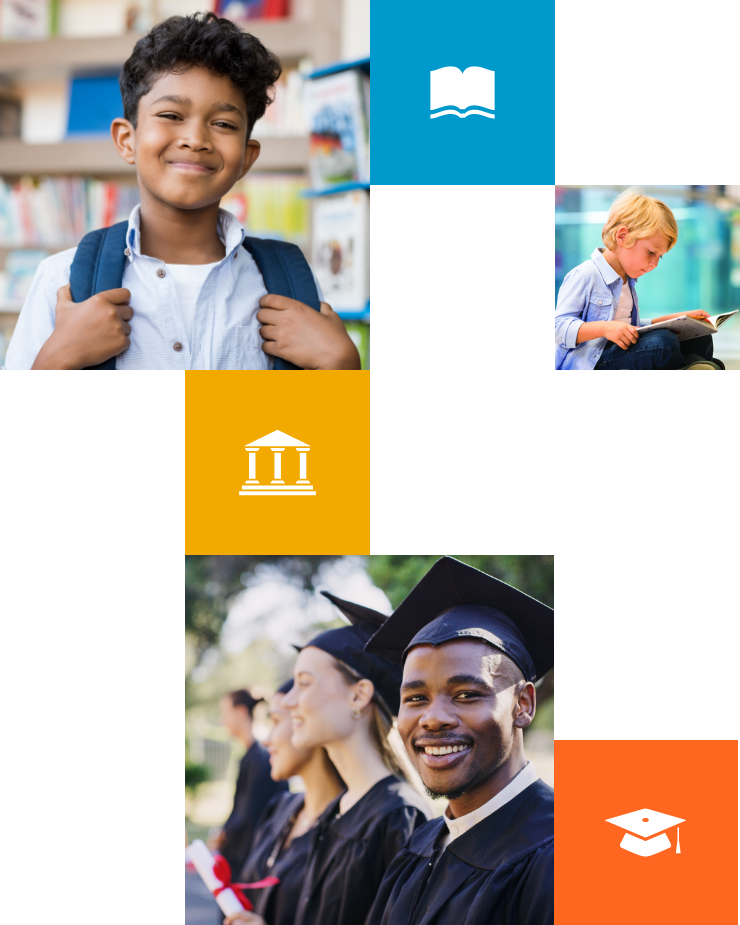
In 2022, we invested nearly $23 million overall, focusing on the three priorities of our Five-Year Impact Plan.
In early grade success and third grade reading, we saw significant progress on cross-state collaboration to advance strong policy and practice. We also tapped our research and convening capacity to engage educators on the issues of COVID learning loss and chronic absenteeism, and more importantly, strategies for combating them.
In college-going, we celebrated a major policy win with the passage of Proposition 308 in Arizona, which will provide a more affordable path to college for thousands of undocumented students. Additionally, we are working toward gains in college participation from historically underserved populations in Florida and a significant expansion of efforts to bring rigorous courses to students in Arizona’s rural high schools.
In postsecondary attainment, we are investing in a program designed to boost access and success for African American males in Florida and in helping to build a statewide community of practice around student success for Arizona’s Hispanic Serving Institutions.
Our work in 2023 and beyond will continue to build on these and other gains, promoting a strong and equitable recovery from the pandemic. COVID-19 has driven many of the challenges we face in the present. But we believe that it does not have to define our future if we act quickly and intentionally, moving forward together.
In partnership,
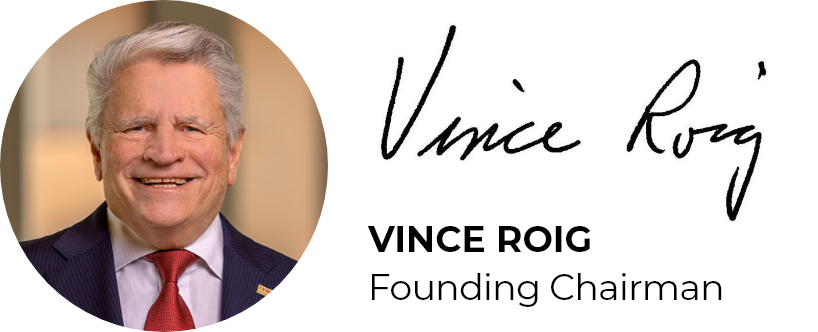
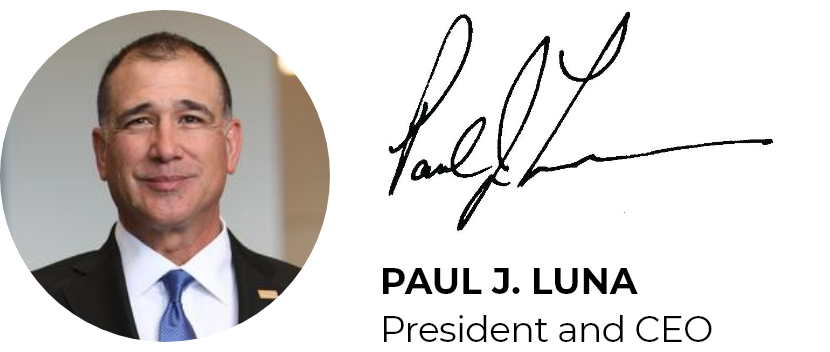
A year of impact
The year 2022 began with a great deal of uncertainty about the way forward for our education system, in Arizona and Florida and around the nation. Students were back in our schools and colleges and universities, but there were many questions about how to deal with a wide range of challenges, including and especially the inequities of access and success widened by the pandemic.
Over the course of the year, we and our partners worked together to face these challenges through a combination of investment in promising approaches for student success, research and analysis designed to raise awareness of problems and solutions in critical areas, and policy advocacy and implementation to widen opportunity for underrepresented and underserved students. In total, we reached more than 150,000 students and 35,000 educators through our investments.
The following are just a few highlights from a year of moving forward together.

Early Grade Success and Third Grade Reading
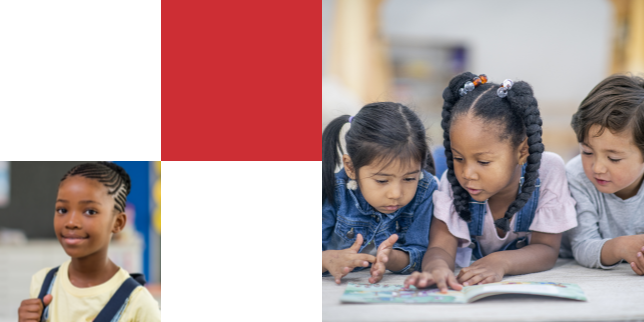
Read on Arizona
Increasing literacy for Arizona’s youngest learners is an urgent priority, as today only 41 percent of the state’s third graders are reading at grade level – and only 30 percent of Latino students.
Read On Arizona, a statewide public/private partnership of schools, agencies, philanthropy, and community stakeholders, is committed to improving literacy outcomes from birth through age 8. Through a combination of technical assistance and literacy supports, Read On Arizona reaches more than 350,000 students and approximately 7,000 educators at nearly 1,400 sites across the state. Prior to the pandemic, the partnership’s work contributed to substantial gains in third grade reading success.
With support from a $750,000 Helios grant, Read On Arizona focused its 2022 efforts on implementing the state’s Early Literacy Policy Framework, which includes building educator capacity, literacy coaching and professional development in high-need schools, and investing in high-quality early learning opportunities. The Framework builds on successful legislation and FY22 budgetary wins and helped Arizona garner a substantial federal Preschool Development Grant. The partnership also began work on a major cross-state learning exchange in collaboration with the Florida Campaign for Grade Level Reading, holding its first convening in September 2022 in Helios’ Tampa office to identify successful, scalable literacy strategies and support their implementation.
The Children’s Movement of Florida
A child’s early learning environment is critical to school readiness and social development. In 2019, 64 percent of Florida’s children ages 3 to 5 enrolled in preschool, but only 57 percent completing preschool were deemed kindergarten ready. The readiness gap is particularly alarming among Black children.
To understand the barriers to preschool participation, Helios provided a $200,000 grant to The Children’s Movement of Florida to launch the Florida Early Learning Planning Initiative in 2022. The Initiative is designed to both listen to stakeholders and outline a roadmap for systems change.
During the listening phase, “Let’s Talk” convenings solicited feedback from parents, educators, and community members regarding the challenges of securing high-quality early learning in both rural and urban regions. The Initiative set out to engage 200 parents in face-to-face conversation during this listening tour, intentionally targeting non-English speakers and individuals of all races and ethnic backgrounds. To date, they have reached 203 parents in 20 counties. These convenings have also engaged 153 educators in 13 counties and 34 early learning center owners in seven counties.
The Florida Early Learning Planning Initiative is now moving from the listening phase to the action phase. In late 2022, nine early learning educators and nine center owners joined other steering committee members to outline a road map for moving forward. Armed with first-hand information, the next phase will design action steps to increase participation and school readiness.
COVID’s Impact on Education in Arizona: Challenges and Solutions
COVID-19 has created significant disruptions for students across Arizona. To document these disruptions and catalyze dialogue about solutions, Helios produced two key research briefs:
Increased Disruption, Decreased Progress
For many students, learning during the pandemic has been a struggle, and achievement data reflect that struggle. Helios partnered with the ASU Helios Decision Center for Educational Excellence, the Arizona Department of Education, and the State Board of Education to produce a research brief documenting the extent of COVID-related learning loss, finding that:
• Students are changing schools at unprecedented rates;
• Students in early grades experienced greater academic challenges than their older peers;
• Achievement in Mathematics has been especially impacted; and
• English learners are struggling more than their English proficient peers.
These findings set the stage for a Summer 2022 convening on the Helios Education Campus that brought together more than 100 school leaders and educators to assess the data and share strategies for addressing pandemic-related learning loss.
Missing Too Much School
One of the longstanding factors in student performance has been chronic absenteeism – missing at least 10 percent (18 days) of the school year. A 2022 brief from Helios and WestEd found that the pandemic has only exacerbated this problem, with one in five Arizona K-8 students now chronically absent – a 57 percent increase in just two years. And the issue is even more acute for students of color and students from low-income backgrounds.
The brief has raised significant awareness of chronic absenteeism as an urgent priority for policymakers, school and community leaders, and educators. Helios brought these groups together in January 2023 to carefully examine the data and share district-level strategies for reducing absenteeism levels.
“The partnership with Helios Education Foundation has advanced our work to ensure parent and educator voices are at the center of reimagining Florida’s early learning system.”
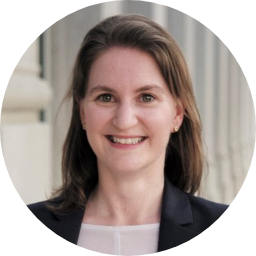
MADELEINE THAKUR
President, The Children’s Movement of Florida

College-Going

Arizona Student Opportunity Collaborative (AzSOC)
Access to rigorous coursework is a critical need in Arizona’s rural communities, where qualified teachers are in short supply, particularly in the STEM fields. For example, fewer than one in four rural schools in the state offer calculus.
To help meet this need, the Arizona Student Opportunity Collaborative (AzSOC) formed in 2019 with Helios support to provide students virtual access to key courses for college and career readiness and recruit and train teachers to teach those courses. During its pilot year, AzSOC reached 250 students across 10 school districts and reported greater than expected demand.
With help from a $950,000 expansion grant from Helios, AzSOC 2.0 has dramatically expanded its reach in just two years. The Collaborative now serves approximately 2,700 students across 70 schools, including 12 courses for dual high school/college credit. AzSOC is now emerging as a model for other states also seeking to strengthen rural access to rigorous courses and qualified educators.
Roadtrip Nation – Arizona
Many students, especially first-generation students and students from low-income backgrounds, struggle with a lack of guidance and support in identifying and pursuing a career path. Roadtrip Nation, a national organization founded in 2001, works to help fill that gap by documenting students’ career exploration journeys and packaging those stories into a free online curriculum designed to engage students and educators in meaningful conversations about preparing for college and careers.
With support from Helios, Roadtrip Nation came to Arizona and captured the stories of three students setting out to explore their career paths. The final product – The Roadtrip Nation Experience: Arizona Edition – was released in 2022 on PBS and received nearly 30,000 views in just its first month, nearly double expectations.
Proposition 308
Reaching Arizona’s ambitious college attainment goal of 60 percent by 2030 demands widening the pathway to education after high school. This includes the state’s DREAMers, students who live in Arizona but lack documented immigration status.
Proposition 308, passed by Arizona voters in November 2022, opens the doors to college for DREAMers who have lived in the state for at least two years and graduated from an Arizona high school by offering them in-state tuition at the state’s colleges and universities. Prop. 308 enjoyed bi-partisan legislative and community support, recognizing the important contributions DREAMers can make to the state and its economy.
Helios was proud to play a key role in the push for passage of Prop. 308, both by the legislature and voters. Now, more than 3,500 high school graduates in Arizona have a more affordable path to achieving their educational goals.
University of Central Florida Downtown Scholars Initiative
Orlando’s once thriving Parramore community currently faces a number of challenges, including high poverty and low postsecondary degree attainment. With funding from Helios, the University of Central Florida (UCF) is collaborating with Valencia College and Orange County Public Schools to promote a college-going culture, increase degree completion, and foster social and economic prosperity among Parramore residents.
The UCF Downtown Scholars Initiative (DSI) directly serves students from three area high schools: Jones, Evans, and Oak Ridge. The $2 million, four-year grant seeks to impact a total of 200 students by providing ‘college knowing and going’ coaching to students from Jones High School in year one, Evans High School in year three, and Oak Ridge High School in year four.
In 2022, the first year of implementation, DSI reached 40 Jones High School seniors. Of those reached, 10 students (25 percent) applied to UCF and were accepted – a 67 percent increase in acceptance compared to the five-year average. Of the 10 students accepted, six enrolled in the fall.
Elevating Excellence
Navigating college preparation and enrollment is a challenge for many families; it’s particularly challenging for students of color and those from low-income backgrounds. To better serve underrepresented students and increase the number who pursue education beyond high school, Pinellas County Schools and the Pinellas Education Foundation launched Elevating Excellence in June 2018.
Aided by an investment of $1,300,000 from Helios in 2019, College and Career Centers (Centers) were opened at four selected Title I high schools as part of Elevating Excellence. Centers are staffed with trained volunteers who assists students with college exploration and application, SAT/ACT preparation, and financial planning, in addition to other support services. Over 2,000 Pinellas County students in grades 9 – 12 received guidance at the Centers during the 2021-2022 school year; high schools with a College and Career Center reported a three percent increase in FAFSA completion from the prior academic year.
In 2022 the number of Centers expanded to include one at each of Pinellas County’s 17 high schools.
“COVID-19 disrupted the educational journey for many of Arizona’s students. I am grateful to Helios Education Foundation for raising awareness of the impact the pandemic has had on student achievement, and more importantly, for bringing together school leaders and educators to move from understanding the problem to sharing solutions.”

KATHY HOFFMAN
Former Arizona Superintendent of Public Instruction

Postsecondary Attainment

Arizona HSI Consortium
Arizona’s 20 Hispanic Serving Institutions (HSIs) are a critical educational resource, serving nearly 100,000 students from across the country. Ensuring that more of these students complete degrees is a top priority for these colleges and universities and they are looking for insights and best practices to achieve that goal.
The Arizona HSI Consortium launched in 2021 with a $100,000 grant from Helios to build a community of practice for the state’s HSIs. The Consortium focuses on professional development, exchange of evidence-based and culturally relevant practices, and collaboration on funding opportunities and other partnerships. The Consortium’s inaugural HSI summit in 2022 attracted 200 participants from around the state, and insights from that gathering helped inform the launch of the Colorado HSI Consortium and has generated inquiries from several other states.
Florida African American Male Experience (FAAME)
Approximately nine percent of students at St. Petersburg College (SPC) in Pinellas County are Black, and only three percent are Black males. Black males are not only underrepresented at SPC, but they are also underrepresented at university campuses across the state. In 2021, Helios granted the St. Petersburg College Foundation $1.6 million for the Florida African American Male Experience (FAAME) Initiative to address the gap.
FAAME provides supports and system-building elements to drive enrollment, persistence, and completion of a bachelor’s degree among African American males residing in Pinellas County. Participation in FAAME starts with an SPC summer bridge program that links students to campus supports and mentors. On-campus services promote student retention and the cohort model is structured to foster peer-to-peer relationships. Participants in FAAME benefit from articulation agreements between St. Petersburg College and the University of South Florida, the University of Central Florida, and Florida A&M University, which guarantees university admission upon successful completion of an associate degree at SPC.
SPC anticipates serving a total of 250 Black male college students over the three-year grant period. In 2022 FAAME introduced the Summer of Success bridge program that hosted 41 students, all of whom enrolled in the Fall. In September 2022, a dedicated FAAME Center was launched at SPC.
Factors that Jeopardize Postsecondary Attainment and Success for Black Students in Florida
Only 31 percent of Black Floridians ages 25 to 64 hold an associate or bachelor’s degree. This rate is 11 percentage points lower than the overall degree attainment rate in Florida and 15 percentage points lower than the rate for White Floridians. Increasing social and economic prosperity must include decreasing the postsecondary degree completion gap among Black Floridians.
In 2022, Helios released findings from a survey conducted by The Hope Center for College, Community, and Justice on the challenges faced by many Black Floridians in pursuit of a college degree, particularly those magnified by COVID-19. Barriers to enrollment and completion included insufficient support navigating the application and enrollment process, housing and food insecurity, and family obligations. While these hurdles existed prior to the pandemic, the instability caused by COVID-19 deepened their impact.
The brief also spotlights areas for action, including targeted coaching and college preparation supports, emergency funding to address issues of food and housing insecurity, and mental health outreach for students and their families.
Financial Summary
In Fiscal Year 2022 (October 2021 – September 2022), Helios Education Foundation made 300 investments totaling nearly $23 million.
| # Grants | $ Grants | |
|---|---|---|
| Community Investment Only | 24 | $19,935,000 |
| All Other Charitable | 276 | $3,050,483 |
| Total | 300 | $22,985,483 |
| # Grants | $ Grants | |
|---|---|---|
| Third Grade Reading | 8 | $5,080,000 |
| College-Going | 3 | $705,000 |
| Postsecondary Attainment | 12 | $13,625,000 |
| Innovative | 1 | $525,000 |
| Total | 24 | $19,935,000 |
The Board of Directors of Helios Education Foundation is committed to the prudent management of the Foundation’s resources to ensure our ability to strengthen education systems, support partner organizations, and create educational opportunities for students.
We are also committed to managing our resources to ensure that our Foundation will exist in perpetuity.
We manage our financial resources and operations under the three principles—asset preservation, portfolio growth, and intergenerational equity—to ensure that future generations will benefit from the same level of investment in the community that we provide today.
The Foundation’s investment strategy and strong financial position are developed under the close guidance and leadership of the Foundation’s Finance Committee and in partnership with the Foundation’s Chief Financial Officer and an independent financial consulting firm.
Our certified public accountants conducted an independent auditor’s report and issued an unqualified opinion of the Foundation’s financial statements. They did not issue a management letter for the fiscal year ending September 30, 2022.



